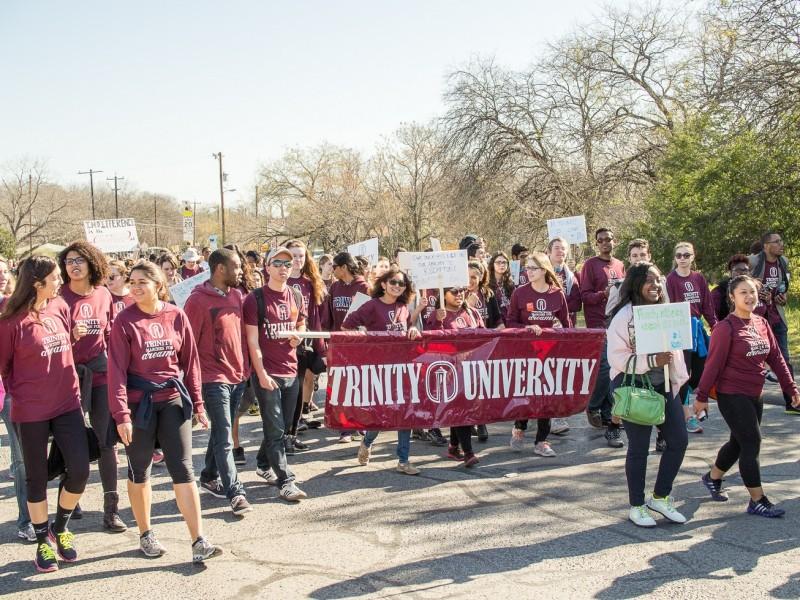This Monday marked the 29th Martin Luther King, Jr., Day, created by Ronald Reagan in 1983. The holiday has been celebrated with marches across the country and a speech on campus by Tim Wise, an antiracist author and educator. The day was also marked by protests across the United States following movements such as the protests in Ferguson, MO., and others like it.
“When we do service work in this country[…] too often the mentality we bring to that is one of charity, not solidarity,” Wise said.
The Martin Luther King, Jr., Commemorative Lecture series was created in 1994, and the speaker this year was sponsored by the city of San Antonio and the university. The selection for the speaker is made by the university with input from the City of San Antonio Martin Luther King, Jr., Commission, which organizes events to honor King within the city and was established in 1986.
A survey was offered to students last year to invite suggestions for the commemorative lecture, but the suggested candidates were found to be unavailable for the event. Speakers for the event are chosen for a variety of reasons, especially for their ability to relate to both younger and older members of the community. The Center for Campus and Community Involvement also contacts other universities that have hosted the potential candidate to learn more about their experience with hosting them.
John Jacobs suggested Wise be considered to speak for the event, and after the
Commission approved Wise, he was selected.
“We try to allow time for the speaker to get to know students before and after the event, that is strongly desired,” said coordinator of diversity and intercultural relations Soisouda Smith. “One of the questions we ask is, “˜What can we learn from the speaker?”
The speech Wise gave was titled, “The Legacy of Dr. King and Today’s Civil Rights Struggle,” and focused on remembering King for all of his statements and beliefs and not only frequently quoted ones. Wise also referenced the continued racial issues for African Americans in the United States and how racist comments are still made in what Wise described as, “coded language,” coining this, “Racism 2.0.” Wise took questions for some time after completing his speech, and then attended a reception after to continue speaking with the audience and answering questions.
“A lot of the race problem grows out of the drum major instinct [as defined by King], the need to feel superior[…] you ought to be there, week in and week out,” Wise said.
In addition to contributing to this speech on campus, the Commission organized their annual march starting at 10 a.m. on Jan. 19 at the Martin Luther King Academy. The march ended at Pittman-Sullivan park, almost three miles from the starting location. Students who attended the march reported people protesting, using the phrase, “Black lives matter.” Across the United States individuals participated in Four-Mile Marches, the Four-Mile March being an event created by the National Coalition Against Police Violence to protest the deaths of Michael Brown and Tamir Rice.
“I thought it was really interesting to see a community come together to demonstrate for justice and equality,” said sophomore Claudia Garcia. “There [was] a combination of older and younger people.”
Smith noted an interest in campus discussion of social issues and world events following the Martin Luther King, Jr., Day events, and invites students who would be interested in helping to start these conversations contact her.
“It would be cool to have our students come into [CCI] and say, “˜Hey, this is happening in the world, how can we use our strength and numbers at Trinity to help?’ Smith said. “We should starting talking about things going on in the world.”







